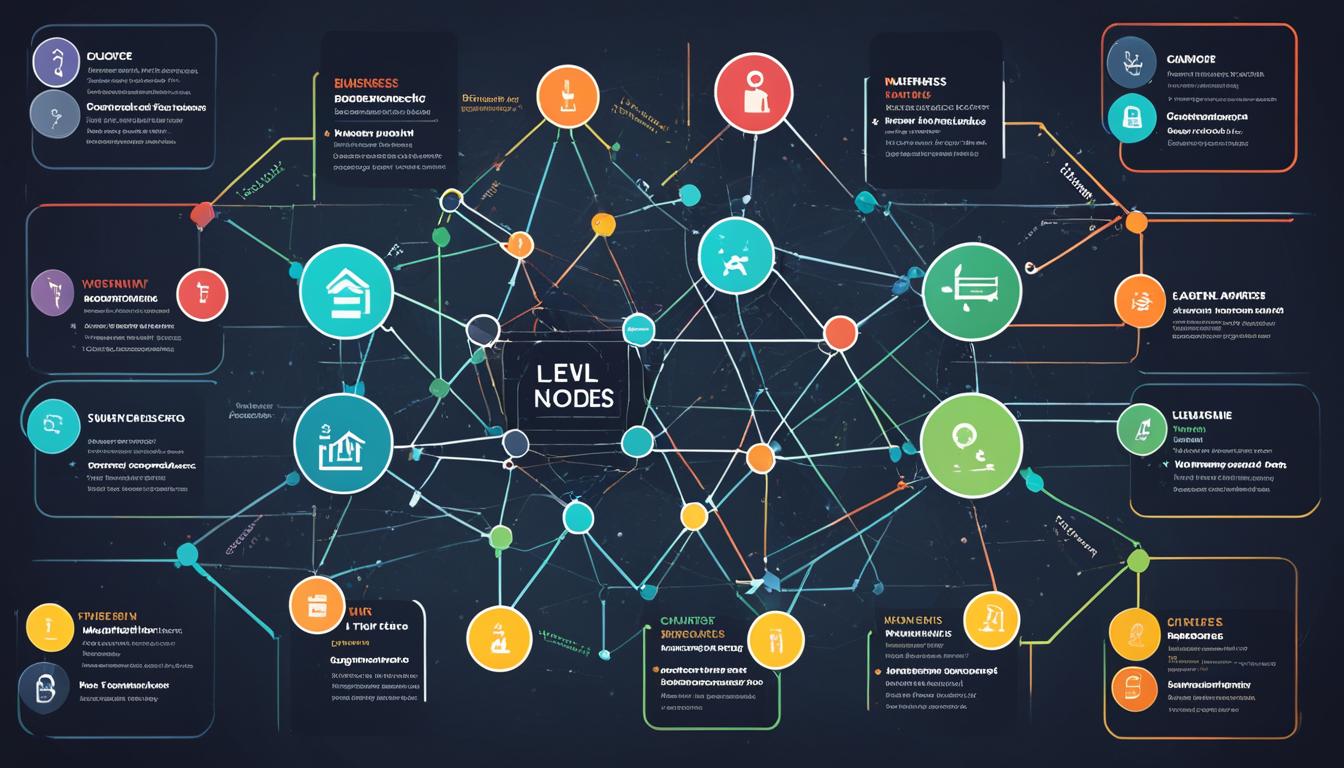A Level Business Guide: Tips for Success
Welcome to our A-Level Business Guide for Success! Whether you’re currently studying A Level Business or seeking insights into the subject, this guide is here to help you excel in your studies.
Prepare for expert advice, strategic tips, and effective exam prep techniques to boost your understanding of A Level Business.
Discover valuable resources and real-world scenarios, and connect with professionals to enhance your learning. Let’s dive into A Level Business and unlock your potential for success!
Understanding A-Level Business Studies Foundations
Analyzing Business Environments and Organizational Responses
Understanding the foundations of A-Level Business Studies is essential for success.
This analysis enables students to identify growth opportunities, anticipate potential risks, and make informed business decisions.
This practical approach to studying business environments fosters critical thinking and problem-solving skills, preparing students for the complexities of the business world.
Developing Management and Leadership Acumen
In addition to analyzing business environments, developing management and leadership acumen is another vital aspect of A-Level Business Studies.
Effective management and leadership are crucial for the success of any organization, and understanding the qualities and skills required is essential for aspiring business professionals.
Students studying A Level Business are exposed to various management and leadership styles, theories, and practices. They learn the importance of clear communication, decision-making, problem-solving, and team-building skills.
This knowledge helps students develop their own management and leadership capabilities, preparing them for future leadership roles in the business world.
It also fosters an understanding of the human aspects of business, including motivating employees, fostering a positive organizational culture, and promoting ethical behavior.
🌟 Hey Students! 🚀 Ready for the ultimate experience? Join us on Studentsinside.com's Facebook, YouTube, WhatsApp, and LinkedIn. Click now for tips, fun, and success vibes! 🌈✨ #StudentLife #JoinUs
Grasping Financial and Accounting Best Practices
Another crucial foundation of A Level Business Studies is grasping financial and accounting best practices. Financial management and accounting are fundamental skills for any business professional, as they provide the tools for understanding and analyzing an organization’s financial health.
Students learn about financial statements, cash flow analysis, budgeting, costing, and financial ratios. They also explore the importance of financial planning, forecasting, and controlling measures for organizational success.
Financial acumen enables students to interpret and analyze financial data accurately, providing valuable insights for strategic decision-making.
This understanding helps students develop a comprehensive understanding of business operations and equips them with the skills needed to analyze the financial viability of business ventures.
| Understanding A-Level Business Studies Foundations | Analyzing Business Environments and Organizational Responses | Developing Management and Leadership Acumen | Grasping Financial and Accounting Best Practices |
|---|---|---|---|
| Key aspect of A Level Business Studies | Studying external factors impacting businesses | Learning skills and qualities required for effective management and leadership | Understanding financial management and accounting principles |
| Provides insights into organizational adaptations | Market conditions, competition, government regulations | Effective communication, decision-making, problem-solving, team-building | Financial statements, cash flow analysis, budgeting, financial ratios |
| Fosters critical thinking and problem-solving | Analyzing case studies and business news | Observing successful leadership examples | Interpreting financial data for strategic decision-making |
Strategies for Navigating the A-Level Business Curriculum
Incorporating Real-World Business Scenarios into Studies
One of the most effective ways to enhance your understanding of A-level business is by incorporating real-world business scenarios into your studies. This allows you to apply the theories and concepts you learn in the classroom to practical situations, thereby deepening your knowledge and providing valuable insights into the workings of the business world.
By analyzing real-world business scenarios, you can better understand the challenges businesses face, the strategies they employ to overcome these challenges, and the implications of their decisions.
This hands-on approach helps you develop critical thinking skills and prepares you for real-life business situations.
To incorporate real-world business scenarios into your studies, you can:
- Read case studies of successful and unsuccessful businesses to analyze their strategies and outcomes.
- Follow current business news and analyze how different companies respond to market trends and challenges.
- Participate in business simulations or role-play activities that simulate real business scenarios.

Focusing on Strategic Planning and Decision-Making
Strategic planning involves setting long-term goals for a business and developing action plans to achieve those goals. It requires analyzing the internal and external factors that impact a business and identifying strategic opportunities and challenges.
Conversely, decision-making involves evaluating different options and choosing the most appropriate course of action. It requires considering various factors, such as potential risks and benefits, financial implications, and ethical considerations.
To enhance your strategic planning and decision-making skills in A Level Business, you can:
- Study real-life business case studies to understand how strategic decisions are made.
- Participate in group discussions, debates, or mock board meetings to practice analyzing business situations and making decisions.
- Work on business projects or assignments that require you to develop strategic plans and make decisions.
- Seek guidance from A-level business tutors or professionals who can provide insights and feedback on your strategic thinking.
Resources for Enhancing Business Study Competence
Students need access to helpful resources to enhance their business study competence. This section explores various resources that can aid in business study, including business study materials, business case studies, and business revision guides.
These resources provide valuable insights, examples, and practice questions, reinforcing understanding and promoting effective learning.
Utilizing reliable and comprehensive study materials is essential to excel in your business studies. Business study materials offer in-depth coverage of key concepts, theories, and frameworks, ensuring a solid foundation of knowledge.
These materials may include textbooks, online courses, and study guides designed for the A-Level Business syllabus.
Business case studies are also valuable resources for enhancing business study competence. These case studies provide real-life examples of business scenarios, allowing students to analyze and apply their knowledge to practical situations.
Additionally, business revision guides can be invaluable tools for exam preparation. These guides condense essential information into concise summaries, making reviewing and retaining key concepts easier.
They often include practice questions and sample answers, allowing students to test their understanding and improve exam performance. Utilizing business revision guides can enhance overall study efficiency and help students focus their efforts on the most critical topics.
Preparing for Business Exams with Effective Techniques
Time Management and Study Schedules
Effective time management is crucial for achieving success in business exams. By carefully allocating time to different topics, tasks, and revisions, students can ensure they cover the entire syllabus while dedicating ample time to challenging areas.
A study schedule helps maintain discipline and organization throughout the exam preparation process.
Here are some tips for effective time management:
- Set specific goals and prioritize tasks to focus on the most critical topics.
- Break down study sessions into shorter, focused intervals to enhance concentration and retention.
- Utilize productivity techniques such as the Pomodoro Technique to optimize study sessions.
- Take short breaks in between study sessions to relax and rejuvenate the mind.
Utilizing Business Study Materials and Exam Guides
Business study materials and exam guides are invaluable resources that provide comprehensive syllabus coverage and offer practice questions to strengthen understanding and reinforce concepts.
These materials align with the examination requirements and enable students to familiarize themselves with the format and style of questions they can expect in the exams.
Here are some effective ways to utilize business study materials and exam guides:
- Begin by reviewing the content in study materials to gain a solid foundation of the subject matter.
- Use exam guides to understand the structure and question types commonly seen in business exams.
- Practice answering sample questions from exam guides to develop familiarity and improve time management skills.
- Refer to study materials and exam guides regularly to reinforce learning and fill knowledge gaps.

A Level Business Exam Approaches and Best Practices
Time Management Techniques
Setting realistic deadlines for completing revision, practice exams, and review sessions will help students stay organized and avoid last-minute cramming.
Effective Exam Question Analysis
Analyzing exam questions is an essential skill for A-level business students. This involves breaking down the question, analyzing the key terms, and formulating a clear and concise response addressing all aspects.
Tips for Structuring and Presenting Exam Answers
The structure and presentation of exam answers play a significant role in conveying knowledge effectively.
Students should aim to structure their answers logically, using paragraphs and headings to present their arguments and supporting evidence.
Additionally, utilizing appropriate business terminology and providing relevant real-world examples can enhance the quality and credibility of their answers.
Maximizing Learning with Business Case Studies and Media
In A-level business studies, maximizing learning can be achieved by effectively using business case studies and media resources. These tools offer unique insights and perspectives that enhance understanding and engagement with key business concepts.
Analyzing Newspaper Articles for Business Insight
An essential aspect of maximizing learning is staying updated on current business trends and developments. Analyzing newspaper articles is a valuable strategy for students to gain business insights.
Podcasts as Tools for Business Concept Mastery
Podcasts are another valuable resource for maximizing learning in A-level business studies. They provide an audio-based medium through which students can explore various business concepts and gain insights from industry experts.
Learning from Business Movies: Fictional and Biographical
Fiction and biographical business movies offer a unique visual and narrative experience that can deepen students’ understanding of business concepts and strategies. These movies provide a glimpse into the business world, showcasing real-life challenges and success stories.
Connecting with A Level Business Professionals and Tutors
For students studying A Level Business, connecting with professionals and tutors in the field is an invaluable resource. Seeking guidance and support from experienced professionals and tutors allows students to gain insights from real-world business experiences and industry expertise.
Leveraging Expert Knowledge for Academic Excellence
By connecting with A Level business professionals and tutors, students can tap into a wealth of expertise beyond what is covered in textbooks.
These professionals have hands-on experience in the business world and can provide practical insights, real-life examples, and guidance on how to apply theoretical concepts to real-world scenarios.
Leveraging this expert knowledge can help students achieve academic excellence by understanding complex business principles and developing critical thinking skills.
Enhancing Business Understanding with Peer Collaboration
In addition to connecting with professionals and tutors, collaborating with peers can also enhance students’ business understanding. Peer collaboration fosters discussions, exchanges of ideas, and the sharing of different perspectives.
This collaborative environment allows for exploring various viewpoints and encourages the development of critical thinking and problem-solving skills.
FAQ
What is A Level Business Guide: Tips for Success?
A Level Business Guide: Tips for Success is a comprehensive resource for students studying A Level Business.
It provides valuable tips and strategies for success in the subject, covering various topics such as understanding the foundations of A Level Business Studies, strategies for navigating the curriculum, resources for enhancing business study competence, effective exam preparation techniques, maximizing learning with business case studies and media, and connecting with A Level business professionals and tutors.
What are the foundations of A Level Business Studies?
The foundations of A-level business Studies include analyzing business environments and organizational responses, developing management and leadership acumen, and grasping financial and accounting best practices.
How can I navigate the A-level business curriculum effectively?
To navigate the A Level Business curriculum effectively, you can incorporate real-world business scenarios into your studies and focus on strategic planning and decision-making.
What resources can I use to enhance my business study competence?
Utilizing resources such as business study materials, business case studies, and business revision guides can enhance your business study competence.
What are some effective techniques for preparing for business exams?
Effective techniques for preparing for business exams include time management, study schedules, and utilizing business study materials and exam guides.
How should I approach A-level business exams?
When approaching A-level business exams, it is essential to employ specific strategies and best practices such as time management techniques, effective exam question analysis, and tips for structuring and presenting exam answers.
How can I maximize my learning in A-level business studies?
To maximize learning in A-level business studies, you can analyze newspaper articles for business insight, utilize podcasts as tools for business concept mastery, and learn from fictional and biographical business movies.
How can I connect with A Level business professionals and tutors?
You can connect with A Level business professionals and tutors to enhance your learning experience. Leverage their expert knowledge for academic excellence and engage in peer collaboration to improve your business understanding.








